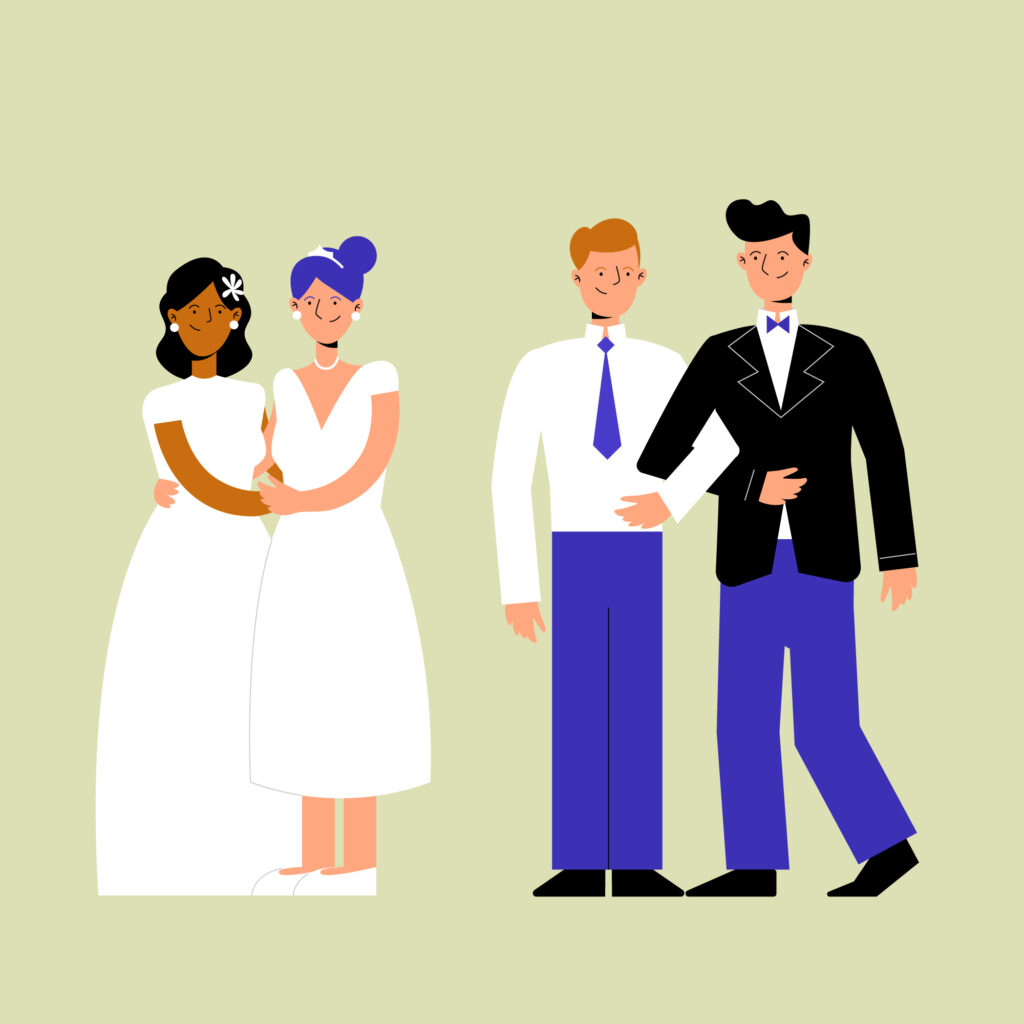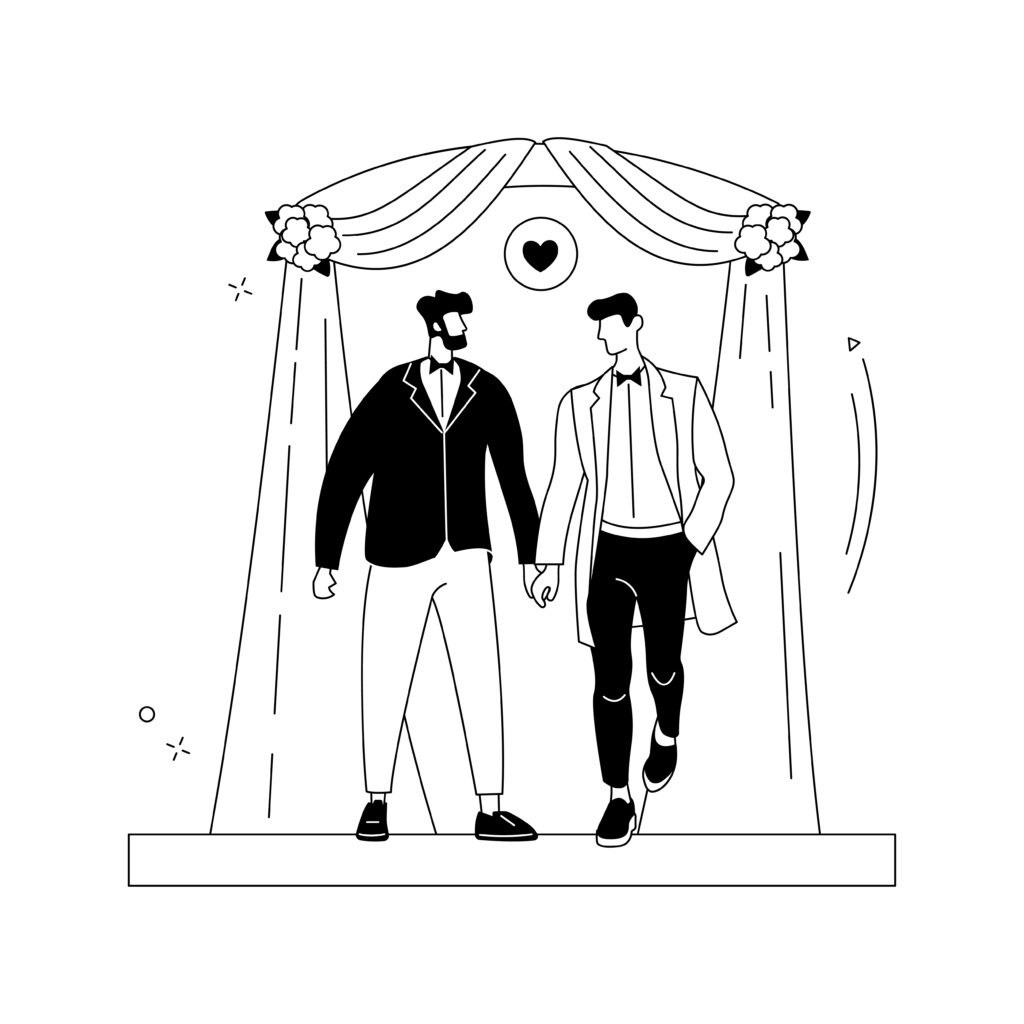As society continues to progress, discussions about LGBTQ+ rights and issues have become more prevalent. One of the most debated topics is whether gay marriages are the same as heterosexual marriages. In this article, we will discuss the similarities and differences between these types of marriages and why it is important to recognize the equality of all marriages.
What is Marriage?
First and foremost, it is important to understand what marriage is. Marriage is a legal union between two people who have chosen to commit to each other and share their lives together. This union is recognized by law, religion, or both. Marriage is a fundamental human right and should be available to all individuals, regardless of their sexual orientation.
Similarities Between Gay and Heterosexual Marriages

The similarities between gay and heterosexual marriages are many. Both types of marriages involve two people who love each other and have chosen to commit to each other for life. They share their lives together and build a future with each other. They both face similar challenges, such as balancing work and family life, and navigating the ups and downs of relationships.
Additionally, both types of marriages involve legal and financial implications. Gay and heterosexual couples who are married are entitled to the same legal rights and protections, such as inheritance rights, tax benefits, and the ability to make medical decisions for their partner.
Differences Between Gay and Heterosexual Marriages
One of the biggest differences between gay and heterosexual marriages is the societal attitudes and stigmas that have been historically associated with being LGBTQ+. Despite progress in recent years, there is still discrimination and bigotry directed towards the LGBTQ+ community, and this can impact the experiences of gay couples who are married.
Another difference is that gay and heterosexual couples may face different legal and financial challenges when it comes to their marriages. For example, gay couples may have to navigate adoption and surrogacy laws, as they may not be able to conceive children naturally. Additionally, legal protections for gay couples can vary by state or country, leading to some discrepancies in their rights and protections.
Why Recognizing Equality is Important
It is important to recognize that all marriages are equal, regardless of the sexual orientation of the individuals involved. Marriage is a fundamental human right and should be available to all individuals who choose to commit to each other. Recognizing the equality of gay marriages is not only a matter of fairness, but it also promotes a more just and equitable society.
In addition, recognizing the equality of all marriages can have positive impacts on individuals, families, and society as a whole. By promoting acceptance and understanding, we can create more inclusive communities that are accepting of diversity and supportive of all individuals.
What are the legal benefits of same-sex marriage?
Same-sex marriage provides a range of legal benefits to couples, including the ability to jointly file taxes, access to social security and Medicare benefits, and inheritance rights. Additionally, same-sex marriage can provide legal protections in the case of medical emergencies, allowing a partner to make important medical decisions on behalf of their spouse.
What are the psychological benefits of same-sex marriage?
Research suggests that same-sex marriage can have significant psychological benefits, including increased levels of self-esteem, improved mental health outcomes, and greater life satisfaction. These benefits are particularly pronounced in jurisdictions where same-sex couples have been allowed to marry for an extended period of time.
How has public opinion on same-sex marriage changed over time?
Public opinion on same-sex marriage has shifted dramatically in recent years, with increasing numbers of people expressing support for marriage equality. In 2004, only 32% of Americans supported same-sex marriage, while in 2021, that figure had risen to 70%. This shift in public opinion has been driven by a variety of factors, including increased visibility of LGBTQ+ people in the media and the advocacy efforts of LGBTQ+ rights organizations.
How have legal challenges impacted the fight for same-sex marriage?

Legal challenges have played a critical role in the fight for marriage equality, with key cases like Obergefell v. Hodges paving the way for nationwide recognition of same-sex marriage in the United States. These legal challenges have been spearheaded by organizations like the Human Rights Campaign and Lambda Legal, which have worked tirelessly to advance LGBTQ+ rights through the legal system.
What challenges do same-sex couples still face in their pursuit of marriage equality?
While significant progress has been made in recent years, same-sex couples still face a range of challenges in their pursuit of marriage equality. These challenges include discriminatory laws in certain jurisdictions, lack of legal recognition in some countries, and ongoing prejudice and discrimination from some individuals and institutions. Additionally, the fight for marriage equality is part of a larger struggle for LGBTQ+ rights, with continued advocacy and activism necessary to ensure full equality for all members of the community.
Conclusion
In conclusion, the debate about whether gay marriages are the same as heterosexual marriages is a complex one. While there are some differences between these types of marriages, it is important to recognize that they share many similarities, and that all marriages should be considered equal. By promoting equality and acceptance, we can create a more just and equitable society that celebrates diversity and supports all individuals.


